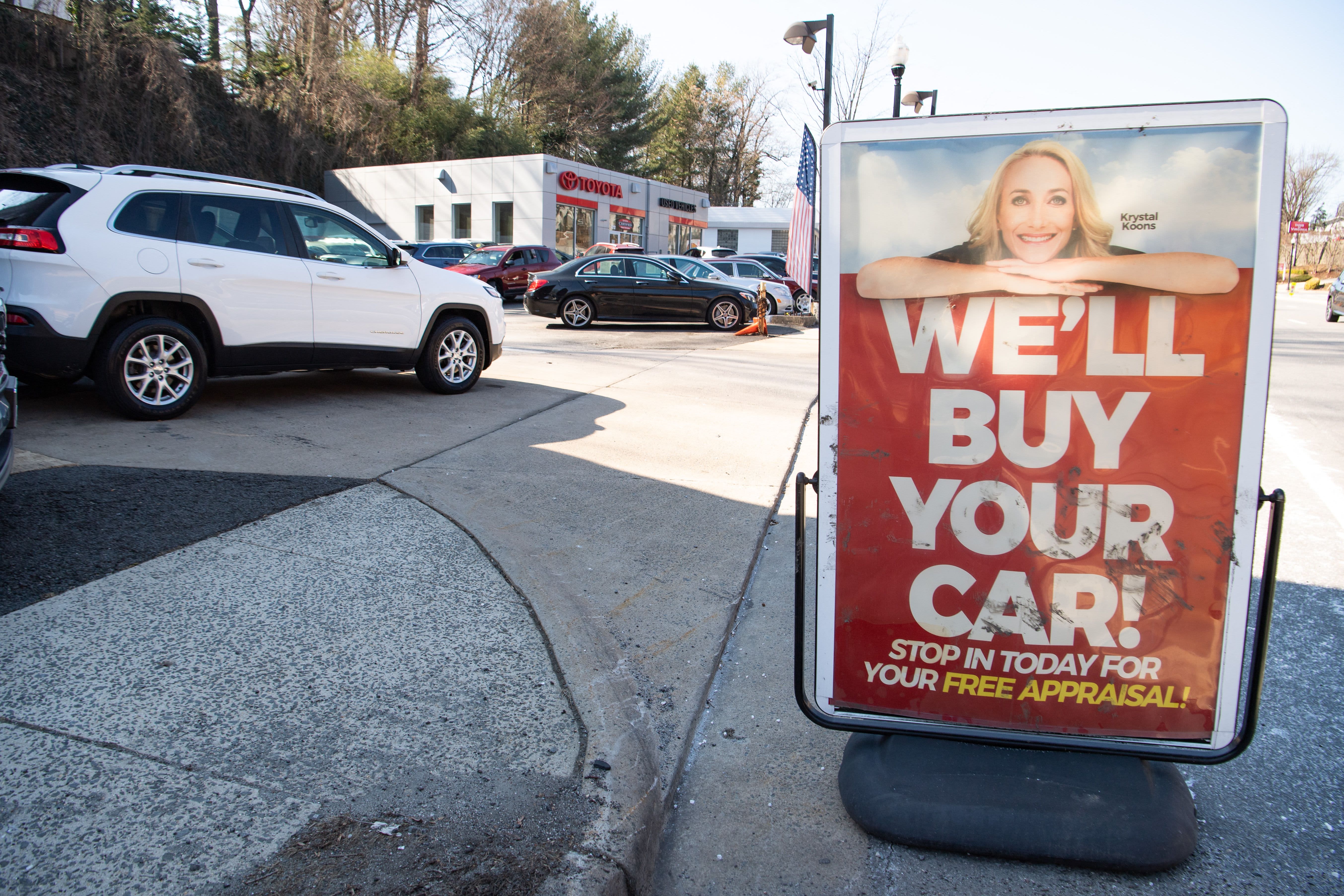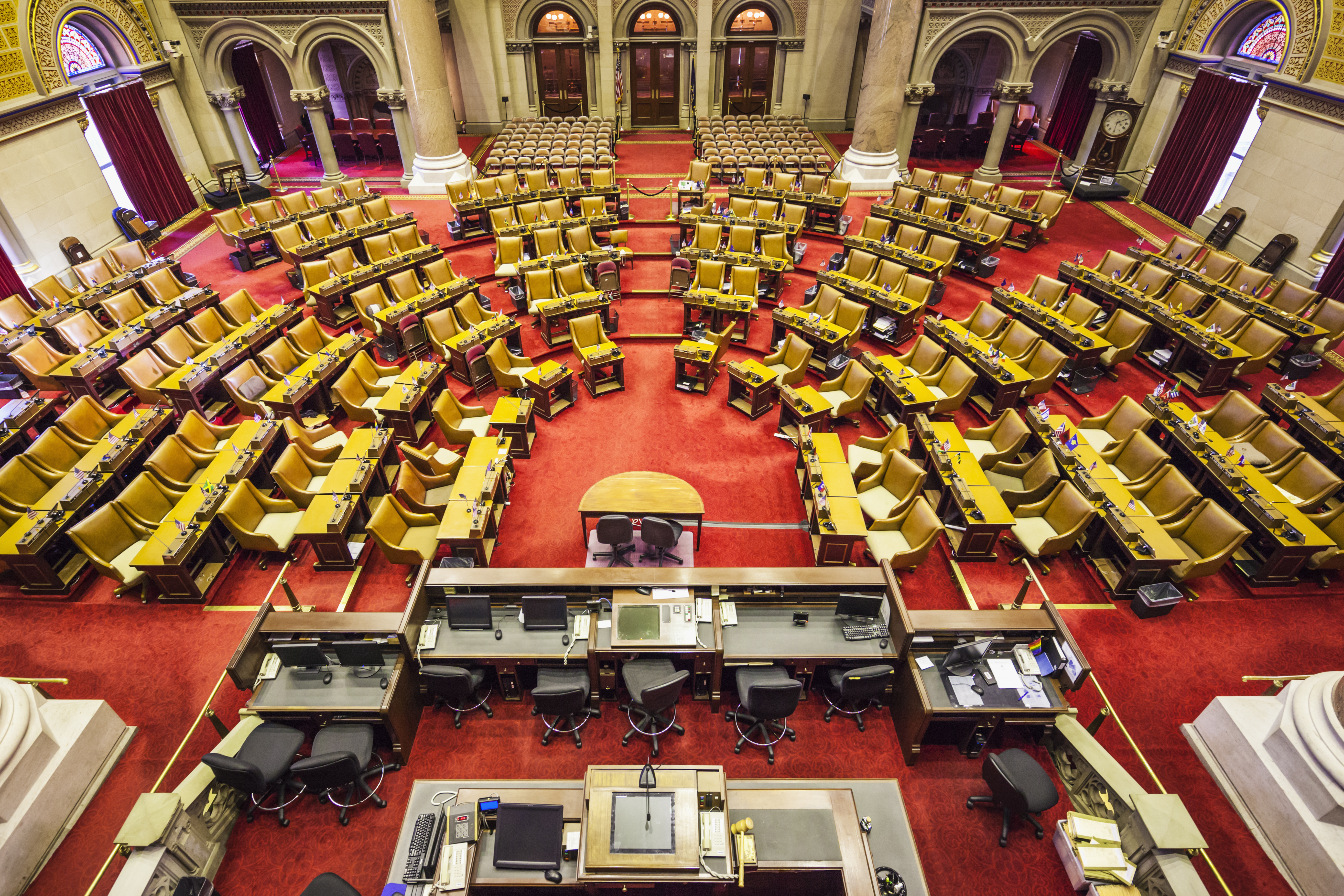This article was originally published on April 7 at 7:26pm EST by THE CITY
Gov. Kathy Hochul on Thursday said she and state lawmakers reached a $220 billion “conceptual agreement” on the state fiscal plan, offering New Yorkers relief at the gas pump, booze to go and some rollbacks to the state’s controversial bail reforms.
The budget, Hochul’s first since she ascended to the role of executive in August, came together a week past the April 1 start of New York’s new fiscal year, as Democrats quarreled over high- profile changes to criminal justice laws.
Neither the leader of the state Senate, Andrea Stewart-Cousins (D-Westchester), nor Assembly Speaker Carl Heastie (D-The Bronx) joined the governor at her press conference announcing the deal, encapsulating the contention among legislators.
Get Tri-state area news and weather forecasts to your inbox. Sign up for NBC New York newsletters.
“We had some complicated issues that have a lot of feelings associated with them on both sides,” Hochul said of their absence. “We’re not here to undo the progress that has been made in the past. Never been my objective. Never will be. “
Stewart-Cousins separately spoke with reporters at the state Capitol.
“This was a difficult year. A lot of times because there are lots of issues, lots of new issues that we were advancing, resources that we didn’t have. We were hoping that we’d have some assistance for a lot of these things from the federal level as well,” said Stewart-Cousins. “But I think, you know, everybody came to the table with the intention of getting a good product for the people in New York.”
Hochul’s first budget process has been marred by accusations that the new governor and her staff are green and either unwilling to pull the trigger on key decisions or refuse to budge in negotiations, said several lawmakers and aides familiar with the closed-door discussions.
“We are not inexperienced,” Hochul said. “We know how to get the things done.”
Discussions over the state budget got off to a slow start as Hochul and members of her administration remained firm that they would not move onto other topics until she and legislative leaders reached consensus on changes to New York’s highly controversial bail reform laws, according to people familiar with the negotiations.
It’s typical for New York spending plans to get bundled together with major and potentially controversial policy changes, a process that shields members from having to record politically risky votes on individual measures.
Excluded from the state budget are key priorities for New York City Mayor Eric Adams — such as retaining mayoral control of New York City schools and renewing the 421-a real estate program, which gives developers tax breaks in exchange for setting aside a portion of units for affordable housing. The legislature could revisit both measures before they expire in June.
Lawmakers said they plan to start voting as early as Thursday evening on the budget, but negotiations on a final deal remain ongoing.
Only some proposed legislative language was available publicly on Thursday evening as Hochul, Lt. Gov. Brian Benjamin and other senior administration officials announced the budget package. Other budget bills have yet to emerge as lawmakers continue to discuss language.
For now, here is what we know about the package that members of the Democratic Party-controlled state Senate and Assembly will vote on.
More Coverage
Criminal Justice Changes
For the second time since passing sweeping bail reforms three years ago that forbade pretrial detention for a host of criminal charges, state lawmakers agreed to allow judges to set bail in more cases.
This time, judges would be permitted to set bail on some repeat offenders, in gun cases involving as few as three firearms (down from 10) or for violating an order of protection. Certain hate crimes would become an arrestable offense instead of resulting in a ticket, Hochul said.
The spending plan also modifies major changes to criminal justice procedures passed at the same time as bail reform that required prosecutors to meet strict deadlines when turning over evidence to defense lawyers, in a process known as discovery.
Under the new changes, Hochul said, cases would no longer be “automatically just dismissed” if prosecutors “in good faith” fail to make a disclosure. The budget also includes additional funding to help district attorneys deploy enough staff to gather all the evidence, from police records and notes to body camera footage, although it remains unclear how much money it will be.
Changes to the discovery reforms have been a top priority for DAs, who say the expedited timeline to produce evidence is a strain to their office that’s resulting in them dropping criminal cases.
Bottoms Up!
New Yorkers will once again be allowed to get alcoholic drinks to-go, restoring a pandemic-era measure for the next three years that’s been popular among consumers but has been a point of contention for liquor store owners who have argued that the measure hurts their bottom line.
Under the agreement, restaurants would be prohibited from selling full bottles of alcohol, and to-go drinks would have to be accompanied by “substantial food,” a definition of which the governor’s office said it’s still working on figuring out.
Under the measure, liquor stores will be allowed to remain open on Christmas Day.
New Yorkers will also get a break on soaring gas prices, in a move that could impact funding for the MTA and other mass transit services. The state agreed to suspend certain taxes on fuel through the end of the year beginning on June 1, resulting in at least a 16 cent reduction for every gallon — an amount that could go up if local governments opt to suspend their gas tax, according to the governor.
Hochul also noted that local officials will have a say on whether three casinos slated for the New York City area can be erected.
A six-person panel made up of appointees from the Assembly member, Senator and Council member who represent the area where the site will go, along with appointees from the borough president, mayor and governor, will be charged with making decisions, requiring four votes to veto or move matters forward.
Renters will also get some relief as lawmakers plan to add an additional $800 million in funding for the Emergency Rental Assistance Program, a pandemic-spurred $2 billion relief program that reached exhaustion for most New Yorkers last year.
The Hochul administration requested an additional $1.6 billion from the federal government earlier this month but received just $119 million.
As of April 1, the state has doled out or allocated $2.1 billion and received some 322,000 applications, according to the state Office of Temporary and Disability Assistance.
Undocumented and Excluded
State lawmakers also agreed to $7 billion in funding for child care over the next four years through subsidies, more than double the current amount, Hochul said.
The Buffalo native said she was “proud as a mother who had to leave a job because I could not find child care many years ago” to make the announcement.
But not everyone will have access to child care. Because the program will be largely funded through federal dollars, undocumented immigrant children will be excluded from the child care subsidy, said state Budget Director Robert Mujica.
Currently, undocumented children are eligible for certain child care programs in New York City, such as Head Start and Pre-K and 3-K programs, but are ineligible for others.
Some undocumented immigrants will also have access to a form of health insurance. The governor announced that the state would provide undocumented seniors over 65 and recent moms health care coverage through a $100 million program in the state budget.
While undocumented children have access to health insurance under a Bush-era change to Medicaid pursued by former New York Gov. George Pataki, most undocumented immigrants only have access to emergency Medicaid coverage unless pregnant.
“What came to my attention is that the mothers who would get medical care up until the birth of a child, they get nothing when the baby is born. It cuts off. And I’ve had a couple of kids and I know you do follow up visits and you need attention and sometimes there’s complications,” said Hochul, who added that mothers will receive coverage for a year after giving birth.
But the funding for health care to undocumented New Yorkers falls far shorter than the $345 million advocates and some lawmakers were hoping for.
Murad Awawdeh, the executive director of the New York Immigration Coalition, chided the governor for the limited expansion, calling it a “callous refusal” to expand coverage.
“Indeed, with this budget, the governor managed to deny both health care and child care to tens of thousands of immigrant New Yorkers, while continuing to exclude them from economic relief. All of this comes at a moment that demands our leaders ensure the health and security of every New Yorker.”
Instead, Hochul said she plans on applying for a waiver from the federal government to expand coverage for other undocumented New Yorkers.
THE CITY is an independent, nonprofit news outlet dedicated to hard-hitting reporting that serves the people of New York.




